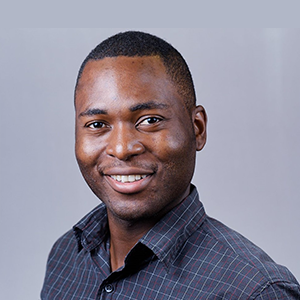
‘N*Gen’ brings science to TV sets in Africa
At the onset of the COVID-19 pandemic, as schools around the world shut down, parents and teachers began looking for alternate learning platforms. Faced with the challenge of teaching remotely, teachers were among the many professionals who had to pivot.
“N*Gen” (pronounced “engine”), a science TV show made in Africa for children in Africa, was born to serve that sudden need for science education — combined with engaging entertainment.
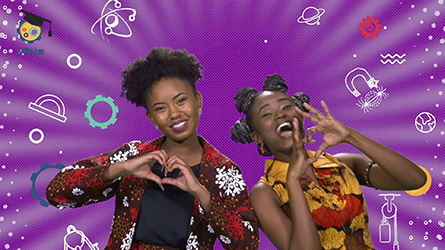
as Nnena and Jiji, sign off each episode with N*Gen's signature call to action:
"Let’s ask, let’s learn, let’s love! And don’t forget to make it fun!"
Paul Falzone is executive director of Peripheral Vision International, or PVI, a media-focused nongovernmental organization based in New York and Uganda. When the pandemic hit, “We all had to stop and assess. … How can we be useful?” he said.
PVI started talks with teachers on the ground in Kampala, Uganda, and with science experts, children, media and entertainment houses; “N*Gen” was created organically from those conversations. TV broadcasters were hungry for content “to show engaging entertaining youth-focused media,” Falzone said, and this hunger shaped the program.
“The idea of ‘N*Gen’ first emerged in April of 2020,” he added, “and by September of the same year, we were on air.”
Since it first aired, “N*Gen” has garnered a lot of attention and interest. With a combined viewership of over 10 million by the end of Season One, the show has aired on the Africa Channel, Discovery Education ( as a special feature in August 2021), Akili Kids TV, and other streaming platforms including Sensical TV and Demand Africa. Viewership has expanded from Uganda to other countries including Kenya, Tanzania, Nigeria, the United States and South Africa.
With its second season concluded and a third in the works, this revolutionary TV series, in addition to teaching scientific concepts, has raised awareness of women and girls in science. The producers deliberately select and highlight women and mothers in scientific roles stereotypically occupied by men.
“We are showing women scientists not as something that can be achieved but as something that has been achieved,” Falzone said.
On this show, representation matters — women are seen teaching and discussing scientific principles, and women also work behind the scenes. Some of them have reached out to other women to become involved. Joy Kiano, a biochemist and molecular biologist, got involved with “N*Gen” after talking to Gosia Lukomska, the executive creative director of PVI. Kiano was brought in first as an educational consultant and now serves as the global ambassador of PVI. She describes her decision to join the team as a no-brainer.
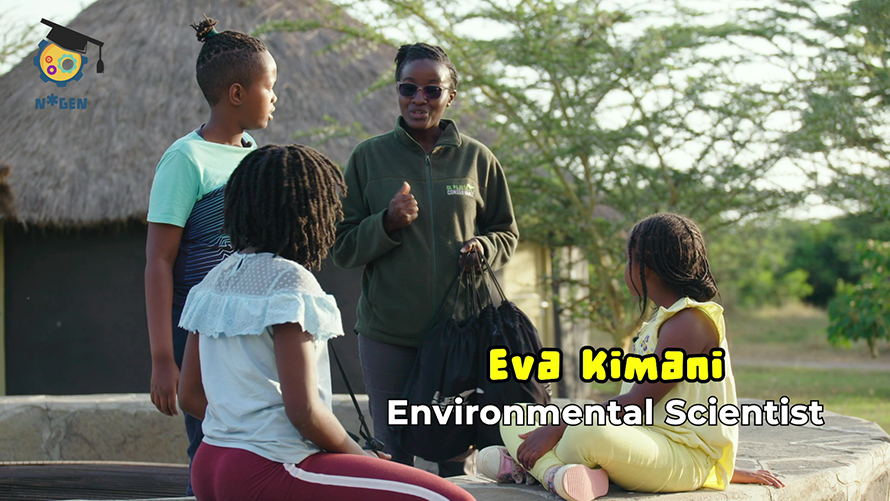
In its first season, “N*Gen” covered topics including digestion, space, fossils, the origin of mountains and the water cycle.
The digestion lesson takes the audience on the same journey our food takes — from the buccal cavity to the generation and expulsion of fecal matter. The teachers clearly highlight how different food components — carbohydrates, proteins and fats/lipids — are digested. The lesson on space introduces children to Earth’s solar system and geophysics, with a primer on space travel. The lesson on mountains explores the theory of plate tectonics — the formation of ranges, continents and other geographical features.
Each lesson is related to an everyday profession and ends with a sequence of questions on the topic of the day dubbed a “brain booster.”
Season Two is starkly different from Season One, which was shot for the most part in the studio. Focused on climate change and its impact on ecosystems, Season Two was filmed outdoors. Children interact with scientists in the field as they make real-time observations on topics such as marine life, silverback gorillas and butterfly populations.
Kid-friendly humor is used to make educational points. For example, in the episode on forests, one of the children on the show claims, “Trees give us oxygen, and we give them farts.”
Here’s an excerpt from the Season Two butterfly episode:
Entomologist: Without insects, we will not be here.
(She opens up a cabinet containing butterflies of the Papilio family. The children explode in laughter at the name Papilio jacksoni.)
Child: Is it Michael Jackson?
Entomologist: No, but it is named after someone called Jackson. Entomologists like myself study and even name them.
(The conversation continues for a while.)
Child: If (all the) insects die, will we also die too?
Entomologist: Actually, yes. Now scientists are very sure.
Child: What can we do to protect insects?
Entomologist: The best way of saving the insects is to protect their habitat, just like we protect our homes. To protect insects, it needs all of us. It needs …?
Children: All of us!
Although the show has been successful, the “N*Gen” production team has faced significant challenges. For Kiano and the team, filming under the constant threat of a COVID-19 lockdown was not trivial. With the possibility of airport closures, crew members feared they might not be able to return home if filming had to be extended.
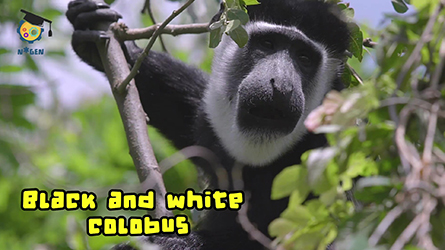
an indigenous forest in Western Uganda in the "Forests" episode of N*Gen's
second season.
In one instance, a crew member “did not want to be stranded outside Nairobi County and needed to get back to her family in South Africa,” Kiano said. With meticulous planning, the team was able to get around this — no team member was stranded.
The makers of “N*Gen” also encountered bureaucracy and toxic culture, Kiano said. When they approached scientists in government organizations and asked for specific individuals — mostly women — to appear on the show, some senior male officials attempted to hijack the project from their junior female colleagues. “We had to step in and find an alternative route,” Kiano said.
This alternative route sometimes meant a last-minute change in an episode’s theme and restructuring its content. For example, Kiano and her team had to switch from talking about endangered species to human–wildlife conflicts due to difficulties in finding a suitable host, which were heightened by tightened COVID-19 restrictions.
“Where we could not get enough experts on endangered elephants because of imminent lockdown, we focused on women rangers at a wildlife conservancy en route to Nairobi,” Kiano said.
Appealing directly to scientists to appear on the show was also a challenge. Kiano’s team sent a trove of emails to scientists seeking their participation and was met, for the most part, with silence. They got one or two responses for every 20 emails they sent. And among those few responses, finding experts who could make their research palatable to children was another challenge.
“We found that what works best was when the scientist was a parent,” Kiano said. Experts who were parents had a great rapport with the kids.
While the ground team was preparing for production and seeking volunteers, an elephant loomed in the room: money. Falzone and his team sought out donors and partners to support this initiative. They also “closed some programs down, shifted money around and were able to pivot quickly and be nimble,” he said.
Today, “N*Gen” has a rapidly growing list of partners and funders, positioning the program to be not only a pan-African phenomenon but a global one.
To the communities reached, “N*Gen” is a beacon of edutainment. It breaks the mold of traditional science education in Africa, exposing the younger generation to a fun, lively, interactive learning environment with children who share their skin color, accent and background.
Educational television programs can have a drench effect (impressive and dramatic) or a drip effect (slow and cumulative) on the audience. When asked about the future and impact of “N*Gen,” whether its effect will be a drip or drench, Falzone said, “We are confident that “N*Gen” will have both the drip and drench effect on audiences around the world.”
Enjoy reading ASBMB Today?
Become a member to receive the print edition monthly and the digital edition weekly.
Learn moreGet the latest from ASBMB Today
Enter your email address, and we’ll send you a weekly email with recent articles, interviews and more.
Latest in Science
Science highlights or most popular articles
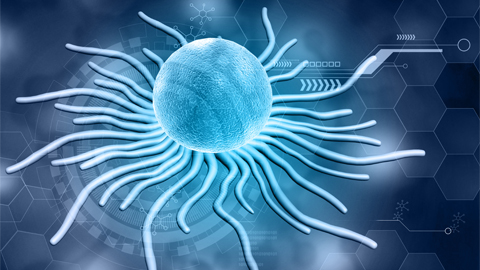
Immune cells can adapt to invading pathogens
A team of bioengineers studies how T cells decide whether to fight now or prepare for the next battle.
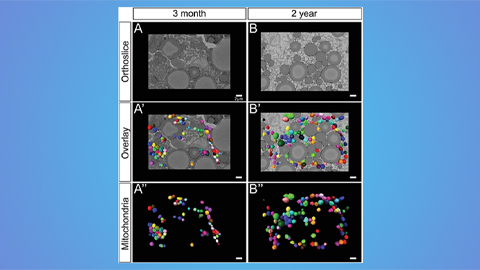
Hinton lab maps structure of mitochondria at different life stages
An international team determines the differences in the 3D morphology of mitochondria and cristae, their inner membrane folds, in brown adipose tissue.
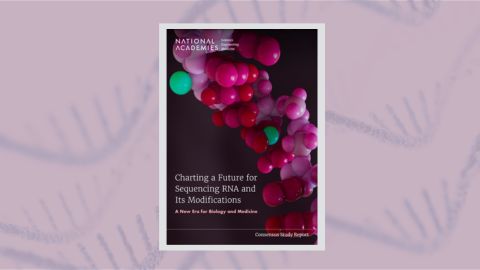
National Academies propose initiative to sequence all RNA molecules
Unlocking the epitranscriptome could transform health, medicine, agriculture, energy and national security.
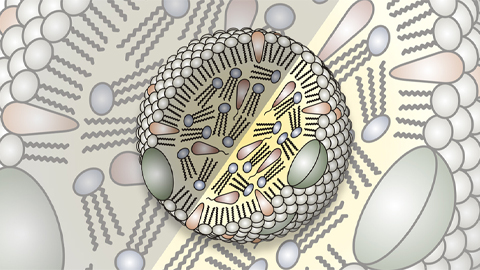
From the journals: JLR
What can you do with artificial lipoproteins? A new key to angiogenesis. Flavonoids counteract oxidative stress. Read about recent papers on these topics.
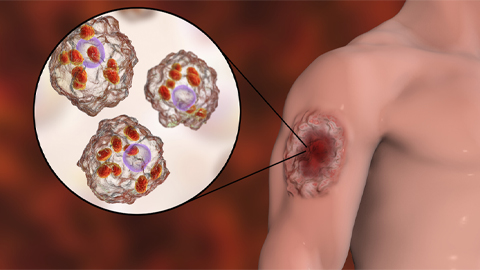
Iron could be key to treating a global parasitic disease
A study has found that leishmaniasis causes body-wide changes in iron balance, leading to red blood cell damage.
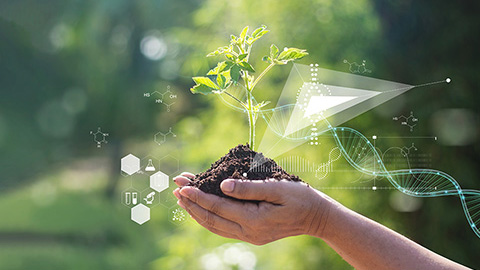
Environmental DNA is everywhere
The ability to extract trace bits of DNA from soil, water, and even air is revolutionizing science. Are there pitfalls?

